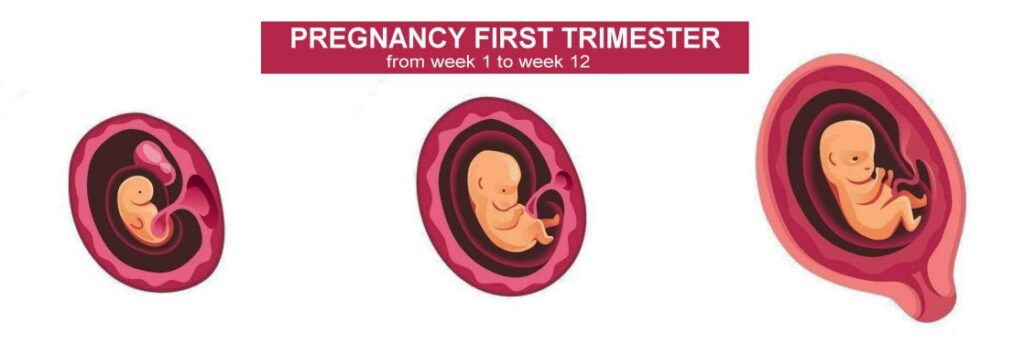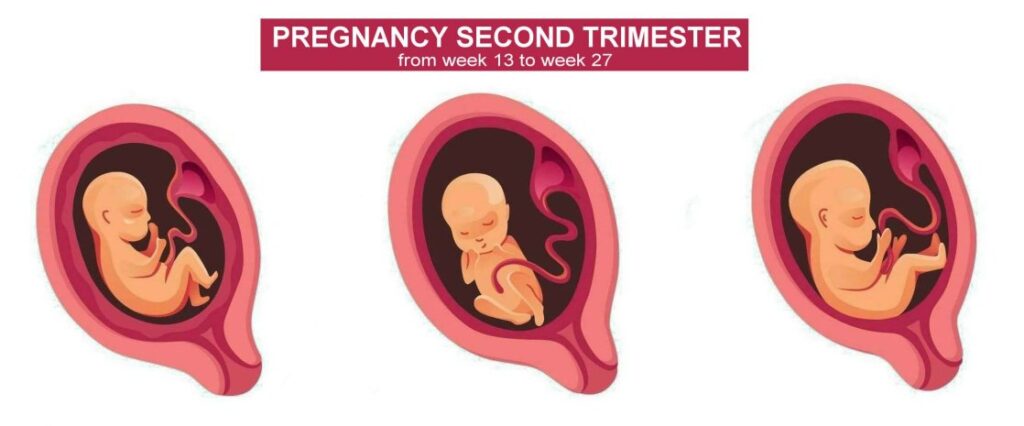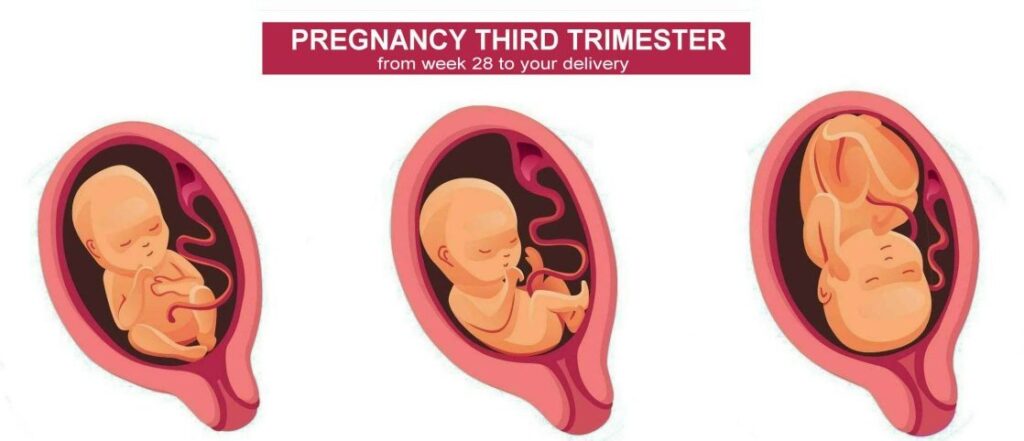Dragon fruit is a juicy and tasty tropical fruit from the cactus family and is well known for its rich nutrients, vitamins, minerals, and potential health benefits. In this blog, we are going to explore dragon fruit and pregnancy.
Contents
- 1 Is dragon fruit good for pregnancy, is it safe to consume dragon fruit during pregnancy?
- 2 Decoding the Benefits of dragon fruit during pregnancy:
- 3 Possible Side effects of dragon fruit during pregnancy
- 4 Potential benefits of dragon fruit for a developing baby in the womb.
- 5 Is dragon fruit good for pregnancy first trimester?
- 6 Is dragon fruit good for pregnancy second trimester?
- 7 Is dragon fruit good for pregnancy third trimester?
- 8 How to include dragon fruit in a pregnancy diet?
- 9 FAQs
Is dragon fruit good for pregnancy, is it safe to consume dragon fruit during pregnancy?
Dragon fruit is generally considered safe and even beneficial to consume during pregnancy. This Juicy and vibrant fruit can be a great addition to a pregnant woman’s diet, offering a delicious and nutritious boost for both mother and baby.
Decoding the Benefits of dragon fruit during pregnancy:
A Dragon Fruit a Day Keeps Pregnancy Woes Away.
Dragon fruit boasts a wonderful array of nutrients, vitamins, and minerals that can be particularly beneficial during pregnancy, supporting both mother and baby’s health. Here’s a breakdown of the key players:
Essential vitamins in dragon fruit for pregnancy.

- Vitamin C: A powerhouse antioxidant and essential for immune function, fetal development, and collagen production. Dragon fruit provides around 8% of the daily recommended value per serving.
- Vitamin B1 (Thiamine): Crucial for energy production, nervous system function, and fetal heart development.
- Vitamin B2 (Riboflavin): Important for energy metabolism, cell growth, and fetal development.
- Vitamin B3 (Niacin): Provides energy, aids digestion, and plays a role in skin health.
- Vitamin B6 (Pyridoxine): Supports red blood cell formation, protein metabolism, and nausea reduction during pregnancy.
- Vitamin E: Acts as an antioxidant, protects cells from damage, and aids in fetal development.
Essential Minerals in Dragon Fruit for Pregnancy.
- Iron: Vital for oxygen transport, red blood cell production, and preventing anemia, a common concern during pregnancy.
- Magnesium: Plays a role in muscle and nerve function, blood sugar control, and bone development.
- Phosphorus: Key for bone and teeth health, energy metabolism, and cell function.
- Potassium: Regulates blood pressure, fluid balance, and muscle function.
Other Beneficial Substances in Dragon Fruit for Pregnancy.
- Fiber: Dragon fruit is a good source of fiber, which aids digestion and can help prevent constipation, a common pregnancy concern.
- Carbs: Healthy carbohydrates in dragon fruit offer readily available energy to fuel both mother and baby.
- Prebiotics: Promote the growth of beneficial gut bacteria, boosting immunity and digestion.
- Antioxidants: protect cells from damage and reduce the risk of chronic diseases.

Benefits Dragon Fruit for Pregnancy:
- Reduces Anemia Risk: Iron and Vitamin C in dragon fruit can help prevent iron deficiency anemia, which is common during pregnancy.
- Supports Immune Function: Vitamin C and prebiotics contribute to a strong immune system, both for mother and baby.
- Promotes Digestive Health: Fiber and prebiotics aid digestion, prevent constipation, and support gut health.
- Provides Energy: Natural sugars and B vitamins offer a healthy energy boost, combating pregnancy fatigue.
- Contributes to Fetal Development: Essential vitamins and minerals like Vitamin C, folic acid, and iron support healthy fetal development by reducing birth defects.
Safety considerations while eating dragon fruit in pregnancy:
- Moderation is key: Stick to recommended portions and avoid overconsumption to prevent excessive sugar intake.
- Wash thoroughly: Wash the fruit thoroughly to remove any bacteria or pesticide residue.
- Choose ripe fruits: Select ripe dragon fruit with vibrant color and slightly soft skin.
- Check for allergies: If you have any known allergies to similar fruits, consult your doctor before trying dragon fruit.
Overall, dragon fruit is a safe and healthy fruit, pregnant women can eat dragon fruit safely and enjoy its many health benefits. But, avoid overconsumption, which can create digestive issues. It is always best to discuss your diet with your doctor or a registered dietitian to ensure you’re meeting your nutritional needs and making informed choices.
Possible Side effects of dragon fruit during pregnancy

While dragon fruit is generally considered safe for pregnant women when consumed in moderation, there are a few potential side effects to be aware of:
Allergic reactions:
- Although rare, some people may be allergic to dragon fruit, experiencing symptoms like itching, swelling, hives, or even breathing difficulties. If you have a history of fruit allergies, it’s best to be cautious and consult your doctor before trying dragon fruit for the first time during pregnancy.
Digestive issues:
- Dragon fruit’s high fiber content can lead to digestive issues like bloating, gas, or diarrhea, especially if consumed in large quantities. It’s recommended to introduce it gradually and start with small portions.
Blood sugar spikes:
- Dragon fruit contains natural sugars, which can cause blood sugar spikes in some individuals, especially those with pre-existing diabetes or gestational diabetes. Monitor your blood sugar levels closely if you have any concerns.
Laxative effect:
- Dragon fruit seeds have a mild laxative effect and can increase bowel movements. While this may be helpful for constipation, excessive consumption can lead to loose stools or diarrhea.
Interference with blood sugar control during surgery:
- There is limited data on dragon fruit’s interaction with medications or anesthesia. If you have a scheduled surgery, it’s best to discuss dragon fruit consumption with your doctor beforehand.
General tips for minimizing side effects:

- Moderation is key: Stick to 1-2 servings of dragon fruit per day.
- Choose ripe fruit: Ripe dragon fruit is generally easier to digest.
- Remove the seeds: If you experience digestive issues, consider removing the seeds before consuming the fruit.
- Listen to your body: Stop consuming dragon fruit if you experience any adverse reactions.
Remember: While these are potential side effects, it’s important to note that they are not common in most pregnant women who consume dragon fruit in moderation. Always consult your healthcare provider before adding any new foods to your pregnancy diet, especially if you have any underlying health conditions. They can advise you on the appropriate amount of dragon fruit based on your individual needs and medical history.
Potential benefits of dragon fruit for a developing baby in the womb.
When it comes to supporting healthy baby development in the womb, dragon fruit packs a powerful punch of nutrients, vitamins, and minerals. Here’s a closer look at some key players:

Dragon Fruit Vitamins for a developing baby:
- Vitamin C: This mighty antioxidant plays a crucial role in building collagen, essential for forming skin, bones, and connective tissues in your baby. It also boosts the immune system for both mother and baby, protecting against infections.
- Vitamin B6 (Pyridoxine): This vitamin helps form hemoglobin, carrying oxygen to your baby’s growing body. It also contributes to brain development and reduces morning sickness, making your pregnancy more comfortable.
- Vitamin A (Beta-carotene): This vitamin supports healthy vision development in your baby, while also contributing to their skin and immune system function. Dragon fruit, although not a direct source of Vitamin A, boasts beta-carotene which your body converts to this essential vitamin.
- Vitamin B9 (Folate): This crucial vitamin helps prevent birth defects like spina bifida. Dragon fruit provides a decent amount of folate, alongside other foods like leafy greens and legumes, to ensure your baby’s healthy development.
Dragon Fruit Minerals for a developing baby:
- Iron: This mineral is vital for building red blood cells in your baby, transporting oxygen throughout their growing body. Dragon fruit isn’t the richest source of iron, but its presence alongside Vitamin C can enhance iron absorption, making it more beneficial.
- Calcium: This mineral is essential for building strong bones and teeth in your baby. While dragon fruit may not be a top source of calcium, it can contribute to overall intake alongside other calcium-rich foods like dairy products and leafy greens.
- Magnesium: This mineral plays a role in muscle and nerve function, bone health, and blood sugar regulation, all crucial for both mother and baby during pregnancy.
Additional Benefits:
- Fiber: Dragon fruit’s high fiber content keeps your digestive system healthy, preventing constipation and optimizing nutrient absorption for your baby.
- Hydration: This juicy fruit helps maintain proper hydration, vital for healthy fetal development and circulation.
- Antioxidants: The antioxidants in dragon fruit protect cells from damage, potentially reducing the risk of chronic diseases for both mother and baby.
By incorporating dragon fruit in moderation as part of a healthy diet, you can provide your baby with a valuable boost of essential nutrients, supporting their healthy growth and development in the womb.
While dragon fruit offers valuable nutrients, a balanced diet rich in diverse fruits, vegetables, whole grains, and protein sources is essential for optimal baby development.
Always consult your healthcare provider for personalized guidance on ensuring your nutritional needs are met throughout your pregnancy.
Is dragon fruit good for pregnancy first trimester?
Yes, dragon fruit can be a good addition to your diet during the first trimester of pregnancy, but with some moderation and considerations:

Dragon Fruit Benefits for the first trimester:
- Nausea Relief: The gentle sweetness and high water content of dragon fruit can help settle an upset stomach and potentially alleviate morning sickness, a common first-trimester experience.
- Nutrient Powerhouse: It’s packed with essential vitamins and minerals like Vitamin C (boosts immunity), B vitamins (energy production), iron (prevents anemia), and magnesium (regulates blood pressure), all crucial for both mother and baby’s development.
- Hydration: Its high water content helps maintain proper hydration during a time when nausea and vomiting can lead to dehydration.
- Digestive Aid: The high fiber content promotes healthy digestion and helps prevent constipation, also common in the first trimester.
Is dragon fruit good for pregnancy second trimester?
Yes, dragon fruit can be a good choice for pregnant women during the second trimester, offering several benefits:

Dragon Fruit Benefits for the Second Trimester:
- Energy boost: The natural sugars in dragon fruit provide a quick and healthy energy source, which can be helpful during the second trimester when fatigue can be common.
- Fetal development: The nutrients in dragon fruit support the baby’s growth and development, especially the nervous system and brain development thanks to Vitamin B6.
- Hydration: The high water content in dragon fruit helps keep you and your baby hydrated, essential during pregnancy.
- Fiber: The high fiber content aids digestion, prevents constipation (which is common during pregnancy), and promotes gut health.
- Antioxidants: Dragon fruit’s antioxidants protect cells from damage and reduce the risk of chronic diseases.
Is dragon fruit good for pregnancy third trimester?
Yes, dragon fruit can be a good choice for pregnant women in the third trimester, offering a variety of benefits:

Nutritional Support:
- Vitamin C: Dragon fruit is rich in Vitamin C, crucial for immune function, iron absorption, and collagen production, all important for both mother and baby.
- Fiber: The high fiber content aids digestion and prevents constipation, a common third-trimester concern.
- Iron: It provides iron, essential for red blood cell production and preventing anemia, especially beneficial as blood volume increases in the third trimester.
- Magnesium: This mineral supports muscle and nerve function, blood sugar regulation, and reduces anxiety, potentially helpful in the later stages of pregnancy.
- Hydration: Its high water content helps maintain proper hydration, crucial for a healthy pregnancy and reducing swelling common in the third trimester.
Additional Benefits:
- Low glycemic index: Dragon fruit releases sugar slowly into the bloodstream, minimizing blood sugar spikes, potentially beneficial for women with gestational diabetes.
- Antioxidants: Rich in antioxidants, it helps protect cells from damage and reduces the risk of complications like preeclampsia.
- Energy boost: The natural sugars provide a quick and healthy energy boost, helpful for combating third-trimester fatigue.
How to include dragon fruit in a pregnancy diet?
There are many delicious and nutritious ways to include dragon fruit in your pregnancy diet. Here are some ideas:

Simple and Fresh:
- Enjoy it raw: Cut the dragon fruit in half, scoop out the flesh with a spoon, and enjoy it as a refreshing and healthy snack.
- Add it to salads: The vibrant color and sweet flavor of dragon fruit makes it a perfect addition to fruit salads or green salads for a burst of flavor and nutrients.
- Make a smoothie: Blend dragon fruit with other fruits like banana, mango, or berries for a delicious and nutritious smoothie. You can also add yogurt, milk, or spinach for extra protein and nutrients.
- Fruit skewers: Thread dragon fruit pieces with other fruits like grapes, pineapple, or kiwi for a fun and healthy snack or dessert.
Creative and Delicious:
- Top yogurt or cereal: Add chopped dragon fruit to your morning yogurt or cereal for a boost of vitamins and fiber.
- Mix it into dips or salsas: Dragon fruit can be used to make unique and flavorful dips or salsas for chips or vegetables.
- Bake with it: Use dragon fruit puree in muffins, cakes, or pancakes for a delicious and nutritious twist.
- Make popsicles or ice cream: Blend dragon fruit with yogurt, milk, or fruit juice to make refreshing and healthy popsicles or ice cream.
- Salsa or chutney: Dice the dragon fruit and mix it with other ingredients like mango, ginger, and chili peppers for a flavorful salsa or chutney to accompany grilled meat or fish.
Additional Tips:
- Choose ripe dragon fruit with bright skin and no blemishes.
- The black seeds in dragon fruit are edible and can be left in or removed depending on your preference.
- Dragon fruit can be stored in the refrigerator for up to 5 days.
- Moderation is key! Stick to 1-2 servings (about 1 cup) of dragon fruit per day to avoid any potential side effects.
- Always consult your doctor before adding any new foods to your pregnancy diet, especially if you have any underlying health conditions.
Remember, incorporating dragon fruit into your diet is a great way to add more nutrients and flavor to your pregnancy meals and snacks. Get creative, have fun, and enjoy this delicious and nutritious fruit!

FAQs
How much dragon fruit can I eat in pregnancy?
However, the exact amount recommended might vary depending on individual factors like overall health, digestive sensitivity, blood sugar levels. Most healthcare professionals recommend sticking to 1-2 servings, about 1 cup total (around 150-300g) per day. This limit helps minimize potential side effects like bloating, diarrhea, or blood sugar spikes.
Is it safe to drink dragon fruit juice in pregnancy?
Yes, most healthy pregnant women can safely consume fresh dragon fruit juice in moderation which provides similar nutrients and vitamins as whole dragon fruit.
Ensure proper hygiene during juice preparation to avoid foodborne illness. Avoid processed juice, they often contain added sugars and preservatives. This can potentially lead to blood sugar spikes, especially for pregnant women with gestational diabetes.
Can a diabetic pregnant woman eat dragon fruit?
Yes, diabetic pregnant women can generally eat fresh dragon fruit, about 1/2 to 1 cup per day, as part of a balanced meal plan. But don’t forget to monitor your blood sugar level after consuming dragon fruit. Always consult your doctor first before adding dragon fruit to your diet.
Is dragon fruit cold or hot?
Dragon fruit is generally considered a “cooling” food, the concept of “cold” and “hot” as applied to food is a traditional classification system used in some cultures, particularly in Ayurveda and Traditional Chinese Medicine.
These classifications are based on the perceived energy and effects of food on the body, rather than on actual temperature.
Dragon fruit is considered a “cooling” food due to several factors like:
- High water content: Dragon fruit contains about 80-90% water, which contributes to a hydrating and cooling effect.
- Sweet and tart flavor: The sweet and tart flavor of dragon fruit is associated with cooling properties in traditional systems.
- High in antioxidants: Dragon fruit is rich in antioxidants, which can help reduce inflammation and heatiness in the body.
However, it’s important to remember that these classifications are not based on scientific evidence and can vary depending on the specific cultural context. Dragon fruit is actually not significantly different in temperature than other fruits when consumed.








